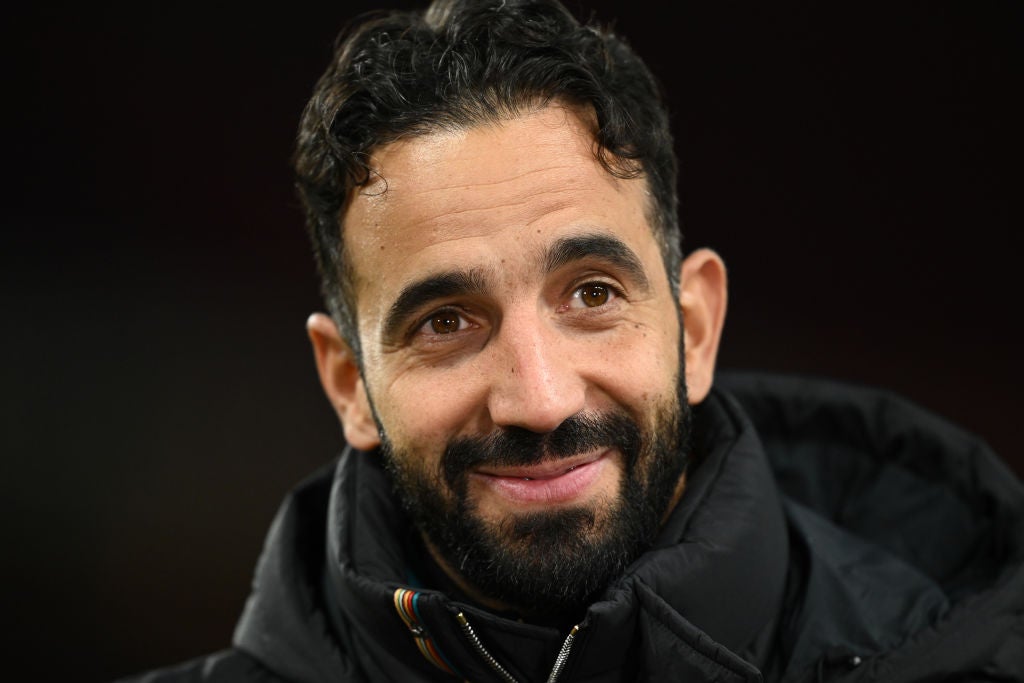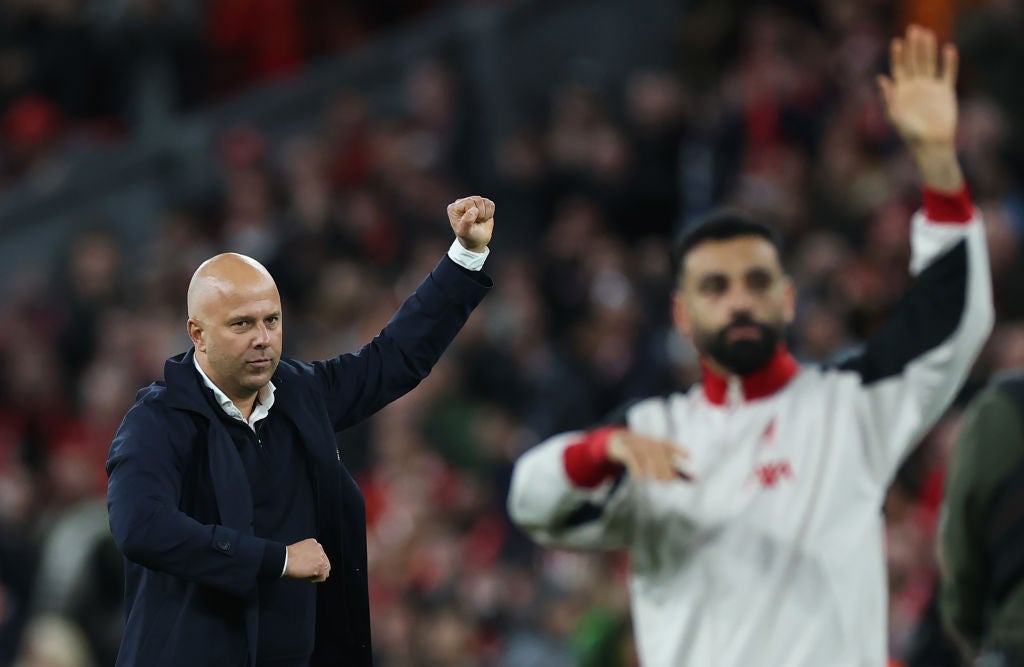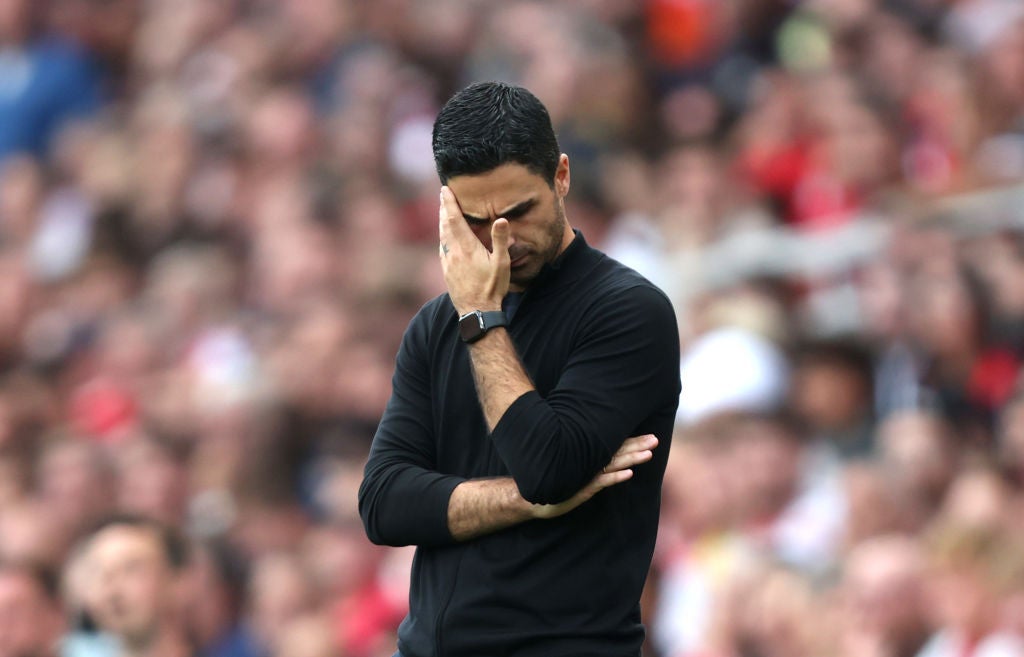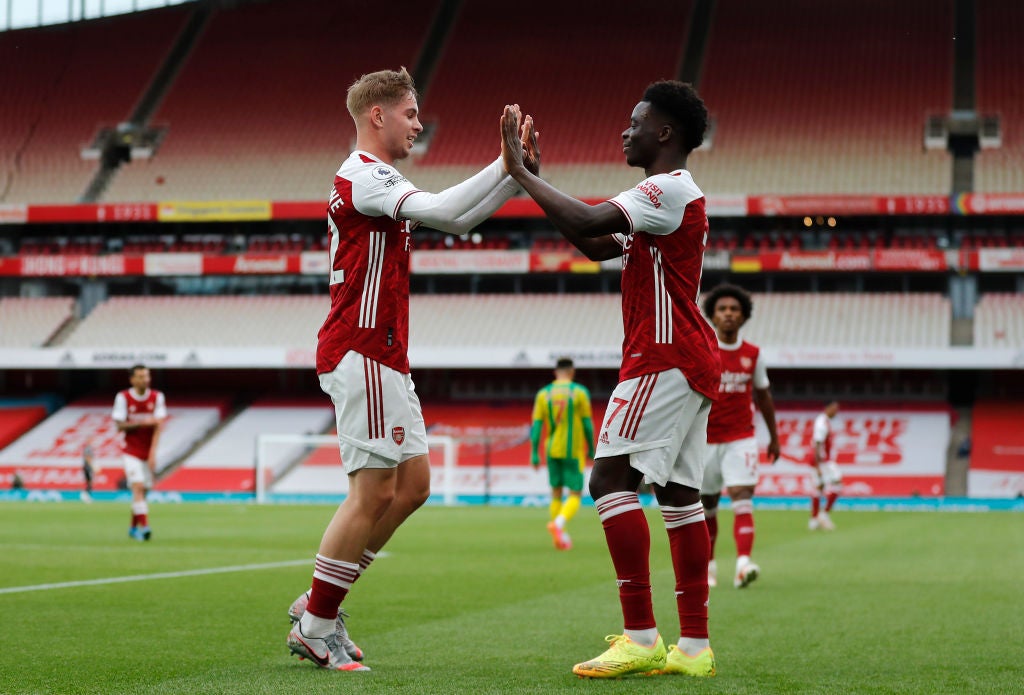In preparing for one of Arsenal’s historically biggest fixtures, Mikel Arteta faces a problem. He has to try and anticipate what Ruben Amorim might do, which is difficult when the Manchester United squad are still at the early stages of adapting to the manager’s approach. The Portuguese can’t yet apply his full principles, which creates the potential for a lot of variables. That is the one advantage Amorim has in these first months of his reign.
It is just as well for Arteta, then, that he has finally been able to apply his own full principles. Arsenal have so swiftly switched from this long period where they had to be extremely pragmatic to one where the goals are now flowing. The return of Martin Odegaard is obviously important, but it’s also as if the entire squad were straining to get back to what they really are.
After so much talk of Arteta becoming Jose Mourinho and how he’d changed the profile of the squad, this is the real Arsenal. As shown in the five-goal wins at Sporting and West Ham, it’s a team coming at you from all angles, who are capable of going on the kind of winning run they need to challenge Premier League leaders Liverpool. This is Arteta football as he envisioned it.
That very reversion informs one of the undercurrents to this fixture.
The post-Ferguson history of Manchester United is really one of finding a modern ideology. That has ironically involved a search that is much more traditional, in that it’s still about finding a coach that can imbue such principles.
Although many at Old Trafford would bristle at this, United have been looking for their own Arteta. There have been a few potential candidates from the club’s vast pool of “legends”, not least Ruud van Nistelrooy and Michael Carrick. Really, though, roles at huge clubs like this have to involve a much greater scope than just a prior association. It’s about having the personality for the challenge, so that the most sophisticated coaching can be applied.
That makes it instructive that this is the first time that those outside Manchester United feel they have got it right. Amorim is one of those where rival coaches nod their heads in approval. There is a real admiration.

It should be acknowledged that there was some of this with Erik ten Hag, but that was tempered by many more misgivings. Tottenham turned him down, largely for reasons like communication, that did end up causing problems at United.
This is one of the elements that has so elevated Amorim’s reception, and is also somewhat true of Arteta.
The Portuguese’s rise has been so stellar that there has simply been no space or time for any flaws to become apparent in his methods. No coach is perfect but it greatly helps if there are no historic weaknesses that diminish their aura.
Searching for this has become a distinctive trend at the elite end of the game, even if it is partly a product of the market and a new managerial generation finally coming through. The biggest clubs now increasingly want exciting coaches with a “clean” record, where the absence of failure only amplifies the sense of something exciting. Arne Slot, Enzo Maresca and Fabian Hurzeler are in the same category.

For an illustration of its importance, compare the “no flaws” plan to what happened under recent United and Arsenal managers like Mourinho, Unai Emery, Louis van Gaal and of course Ten Hag. Any bad spells were immediately filled with reference to previous failures and the reasons for them, with that often serving to perpetuate poor form. Doubts were fostered. Mourinho couldn’t have a bad spell, it was instead that his regressive football made bad spells inevitable.
These coaches had the experience to weather poor form and pressure, sure, but also a lot of reasons for hierarchies to doubt whether something deeper was going wrong.
This is why Arteta’s tough two first years at Arsenal fostered confidence rather than concern. He was a novice manager who had no preparation for such difficulties, but he stayed obstinately true to an ideology.
The big question for Amorim is whether he can have the same effect as Arteta. It might not have felt like it in the midst of some dismal spells, but two years was actually an impressively quick time to turn Arsenal around. They went from a basket case in January 2020 to title challengers by August 2022.
Arteta was undeniably aided by the club’s appetite for change. Arsene Wenger’s long decline meant it wasn’t as abrupt as Sir Alex Ferguson retiring on top, and United trying to perpetually recreate his success.

There is still an argument that it left Arsenal in a worse situation. They had undergone so many years of drift that the squad was overpaid and unworthy of a top club, which in turn left them with little money to spend. Even more alarmingly, and one reason why the Kroenke ownership ultimately decided to act by appointing Arteta, Arsenal were falling from the top level. They were becoming irrelevant, with less global interest.
That has never happened to United. Nevertheless, Amorim has taken over a supertanker, that has already proven hugely difficult to turn around. Arsenal were more lithe as a club, although the biggest investments they made were actually in allowing Arteta to cut the team's losses on some huge contracts and overhaul the squad.
Amorim has some similar issues, that will shape this game. United have a squad built to multiple different ideas, but little PSR headroom. They still need big exits.
Amorim does have some other advantages: for example, Kobbie Mainoo, Amad Diallo and Alejandro Garnacho already have significant Premier League experience. By contrast, Arteta had to blood Bukayo Saka and Emile Smith Rowe. Such young players foster a badly needed sense of reinvigoration.

And, in football, there is not much that’s as invigorating as a fast break. That is one thing United are built for. Arteta’s staff have been highly conscious of how good they are in transition. They’re also wary of how this is one quality that a coach as good as Amorim will really hone.
Arteta's real question is how assertive Arsenal can be against a fast-breaking side. One issue that Amorim has already encountered is when opposition sides sit in shape and his own team overcommit, they can be got at. Ipswich Town should have scored more than once. Everton didn’t have the quality up front, especially in that otherwise fruitful first 35 minutes. All of this could be recipe for a reckoning against a flying Arsenal attack.
Arteta has reasserted his ideology. Amorim is starting to apply his. The difference will dictate Wednesday’s game, and perhaps a lot more after that: from the title race to United’s future.







